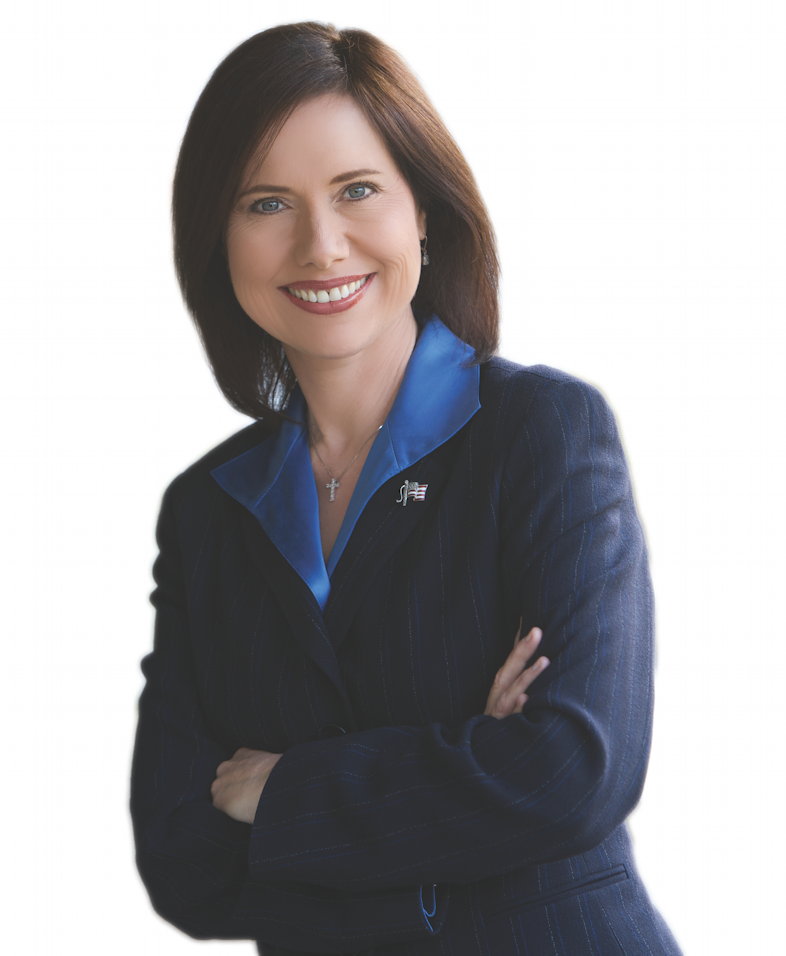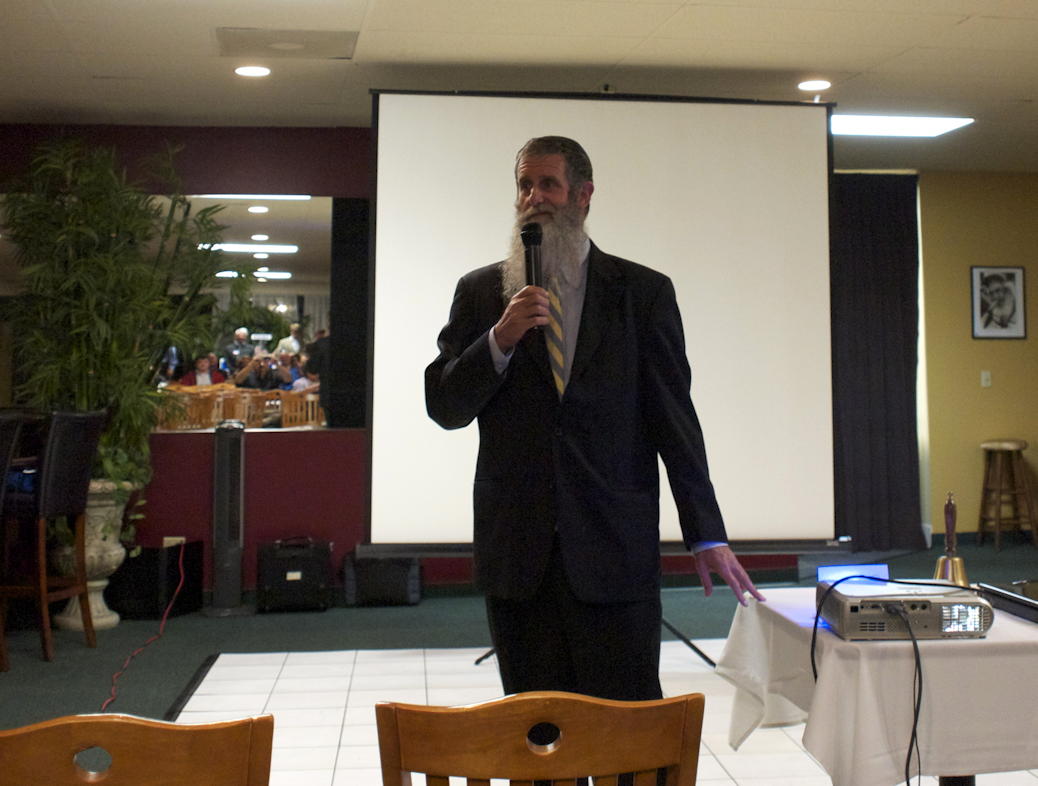Nobody can beat Dianne Feinstein?
Nobody likes Dianne Feinstein. Not even her former campaign workers. But she almost always wins by huge margins. With voters recognizing that averting the coming financial crisis requires fiscal sanity, can the Republicans do better in 2012 against Feinstein than they did against Barbara Boxer in 2010?
Currently, the declared candidates are Elizabeth Emken, Dirk Allen Konopik, Orly Taitz, and Nachum Shifren. None of California’s familiar names are in the race yet—even Dianne Feinstein hasn’t announced, although it’s assumed that she will. Conventional wisdom is that it doesn’t matter: no matter who runs against her, the combination of incumbency and California’s left tilt will ensure that Feinstein wins.1
There are no real strong candidates running yet. Konopik2 and Taitz3 are fringe candidates. On paper, the best candidate is Elizabeth Emken. She’s a generally-likable inoffensive candidate with an emotional focus—autistic children. Her campaign page has nothing about her; searching on other pages, it appears that her degree is in economics and political science, and that her emotional focus is forcing insurance companies to cover services related to autism in children. She’s worked with establishment Republicans like Charlie Crist; she has Carly Fiorina’s email database, and she wishes she was endorsed by reformer Sarah Palin.4
Her main problem is that she hasn’t yet articulated what she’s running for. At the moment, she appears to be a single issue candidate, and while it’s an issue with some emotional appeal, it’s not something that resonates strongly in this economy. And regardless of her focus, it’s going to take extraordinarily hard work to convince California voters to vote for her over Dianne Feinstein.
On the other end of the Republican field is a firebrand. Rabbi Nachum Shifren is also generally-likable, but he’s not inoffensive. Of Senator Feinstein, he said “She’s a loser. She’s a commie. And she’s destroying the country.” His focus is also emotional: a war against the racism of multiculturalism. He believes that Western values—democracy, fair play, the rule of law—are superior; and that it is racist to assume that members of other cultures cannot rise to that superior level. He’s been a teacher both at public schools and at prisons, and has taught the same people in both places.
He’s obviously willing to work hard to win, driving down from Los Angeles to San Diego to speak to a small room of people at the San Diego Tea Party’s evening gathering. On the other hand, he’s not willing to do the work to update his web site—it still reflects his 2010 State Senate run. And it looks like a badly-made MySpace page. With a page like that and his deliberately antagonistic speech, it will be very easy for him to fall into the role of fringe candidate. He’s clearly self-aware enough to realize this—he addressed it when he spoke to the San Diego Tea Party. But it’s still going to be a tough road for him.
In Feinstein’s last race, in 2006, she won 59% to 35% against Richard Mountjoy. That’s the best she’s ever done.
| Election | Feinstein | Republican | ||
|---|---|---|---|---|
| 1992: | 54% | 38% | John F. Seymour | special election to replace Pete Wilson |
| 1994: | 47% | 45% | Michael Huffington | |
| 2000: | 56% | 37% | Tom Campbell | |
| 2006: | 59% | 35% | Richard Mountjoy |
While she’s never been able to break 60% like some incumbents, her opponents never broke 40% except when Huffington spent a lot of money on what was then termed the nastiest election in United States history. And the percentage of third-party votes has been dropping while, except for the nasty election, Feinstein’s margin of victory rises even more.
| Election | Third-parties | Feinstein’s margin | Breakdown | |||
|---|---|---|---|---|---|---|
| 1992: | 8% | 16% | 2.8% Peace and Freedom | 2.6% American Independent | 2.3% Libertarian | |
| 1994: | 8% | 2% | 3.0% Peace and Freedom | 2.1% Libertarian | 1.7% American Independent | 1.7% Green |
| 2000: | 8% | 19% | 3.1% Green | 1.8% Libertarian | 1.3% American Independent | |
| 2006: | 6% | 24% | 1.7% Green | 1.6% Libertarian | 1.4% Peace and Freedom | |
Even if there were enough third-party votes to swing the election, those are hard-core voters. They’re either further to the left than even Feinstein, or further to the right than can win in California: the Greens, the Libertarians, and Peace and Freedom. It’s not that they’re independents, it’s just that the party they’re tied to isn’t one of the major ones. They’re not Nobody voters.
You can see that in 2010’s election, where Carly Fiorina ran against Barbara Boxer. Boxer barely topped 52%, but she was still 10 points ahead of Fiorina. Fiorina should have been a strong candidate, but this is California. The Republican candidate needs to pull from the Democrats. They’re not going to get the Peace and Freedom or Green voters, nor even the Libertarians.
And we know from the 2010 campaign that if the Republican candidate does manage to start polling within range of the Democrat, the election will get vicious. The same tactics used to bring down Huffington destroyed Meg Whitman’s lead against Jerry Brown. The two were running neck-and-neck, with Whitman sometimes ahead and Brown sometimes ahead until September when news leaked out that Whitman’s maid had faked her immigration status. It didn’t matter that Whitman had done everything right, both legally and ethically. It’s about image.
California is more about image than I see in any other state. It isn’t that image isn’t important elsewhere—but that we’re so into image here that we aren’t ashamed to say it publicly. At the Women’s Conference debate in 2010, Meg Whitman was cheered as the “prospective first woman governor of the state” and booed when she said she would “talk about where Gov. Brown stands on the issues.”
For the same crowd, image brought cheers, issues brought boos. Issues don’t matter here. Dianne Feinstein could come out against medical marijuana and still win. It’s her image that matters, not her record.
The issues that affect the rest of the country don’t affect California’s voting. The country is spending more than it earns and will go bankrupt if it stays on its current path? California’s been doing that for over a decade, and we’re still happy with it. We vote for just about every ballot proposal that spends money, and against just about every proposal that raises taxes.
Feinstein appears in Peter Schweizer’s• Throw Them All Out•; she and her husband “bought $1 million of equity” in Amyris Biotechnologies, almost certainly using insider information about a Department of Energy grant going to that company. Due to the lax reporting requirements on congress, we don’t know how much money they made, but it was likely around $3 million. She later fought a bill that would reduce the tax credits Amyris receives. But this won’t matter to us. I don’t think we care if Feinstein’s corrupt. We’re corrupt. We voted Jerry Brown into office in 2010, for Christ’s sake.
How does a fiscally-sane Republican candidate gain traction in a state like this? If this election is like 2010, the Republican will need to pull 10% of Democratic voters; if it’s like 2006, the Republican will need to pull 13% of Democratic voters.
And with the new open primary system here, the worst case scenario for the Republicans would be if a credible Democratic opponent to Feinstein were to run. That would likely mean both of the top two who go on to the general would be Democrats—as would have happened to Scott Brown in Massachusetts if Massachusetts had California’s system.
California is in a political death-spiral. Both Democrats and Republicans are in love with establishment politics: the pro-incumbent open primary is going to kill the Republican brand in this state, but Republicans in office supported it. Our voting security is about as lax as it could possibly be. When I go to vote in San Diego, I never have to identify myself, all I have to do is get my name basically right; if I get it slightly wrong they’ll offer to correct it for me.
And worse, our poor political decisions drive away people that might vote for better candidates. California is an unfriendly place for fiscally-sane people to do business. This means that they leave, and their employees leave, and those who remain vote for more and more fiscally insane laws.
California may be over the edge. However, if you live outside California and you want to avoid our fate, pay attention.
In response to California 2012: 2012 is going to be a very important election for San Diego. Do we continue to reform the city’s financial state, or do we resume the path to insolvency?
Yes, even if Feinstein doesn’t run she’s still got a lock if she wants it. She is California’s Machine Politician.
↑Konopik wants to “criminalize” all abortions. It’s the first issue in his “where I stand” on his web site. He wants to “sponsor/maintain legislation that rejects LGBT lifestyles as an honorable and healthy choice.” It’s one thing to oppose legislation that promotes gay rights5, it’s another thing entirely to support legislation that rejects gay “lifestyles”. He’s generally for more intervention to fix too much intervention. Too many regulations and fees on businesses? “Sponsor federal legislation that would provide funding” to centralize data on small businesses and make it easier for them to find and pay those fees. Sounds like a right-wing fascist? Well, he also wants to “grant immediate American citizenship to all illegal immigrants currently in the U.S.”
As if those sets of stands won’t piss off enough people, he includes his “Christian Worldview” in his issues book, including that “the universe and all that is in it was created around 6,000 years ago… Mankind is the apex of God’s six-day creation and was literally created out of the dust of the ground… Macroevolutionary theory directly contradicts the Bible…” He then goes on to say that he will, as Senator, “oppose it in all its forms”.
It goes on like this, but there is nowhere this candidate could win, even in as strange a state as California.
↑Taitz is a birther, even after Trump engineered the release of President Obama’s birth certificate. That appears to be Taitz’s number one, and perhaps only, issue.
↑On the one hand, that was a very misleading ad. On the other hand, implying a Palin endorsement in California says something. What, I don’t know. But definitely something.
↑Though I’d disagree with this, many such positions are not egregiously wrong, they’re just wrong, and often the result of the government getting too involved in personal affairs such as marriage.
↑
candidates
- Dianne Feinstein’s “Saving Kids From Dangerous Drugs Act Of 2009″—A Solution In Search Of A Problem: Clay Butler
- “So the brownie bill will do nothing to constrict children’s access to marijuana, which they access illegally and unrestricted on the street, but it will restrict sick adults from accessing good tasting medical marijuana in a form that doesn’t require smoking.”
- Dr. Orly Taitz, Esquire
- “World’s Leading Obama Eligibility Challenge Web Site”
- Elizabeth Emken for U.S. Senate
- At the moment there isn’t much here. Look closely for a bio link at the bottom of the page.
- Konopik for CA 2012
- “Christian, Veteran, American” Also, Flash enthusiast.
- Rabbi Shifren for Senate
- Currently this page is for his California State Senate District 26 race, but since he’s running for the federal senate this year, he’ll be able to re-use the domain.
- San Diego Tea Party
- “San Diego Tea Party is a grassroots organization… created, and are run by people from all walks of life, with one common belief: ‘If we continue to do nothing about our failed system, and remain silent, our situation in America will get worse’.”
elections
- California Proposition 14: the one-party act
- Proposition 14 appears to answer the question beltway politicians have been asking for months: how to stop future Scott Browns and Doug Hoffmans.
- You don’t need papers to vote
- No, you do not need papers to vote. You just need to walk in and know someone’s name.
history
- GOP candidate makes fishy claim of Palin support: Dave Weigel
- “Only three of the 11 women mentioned in his piece—Susanna Martinez, Nikki Haley, and Carly Fiorina—were actually endorsed by Palin.”
- SarahPAC Candidates at SarahPAC
- Candidates endorsed by SarahPAC.
- Saturday Night Card Game (Gloria Allred Jumps El Race Card Tiburón): William A. Jacobson at Legal Insurrection
- “Meg Whitman hired Nicky Diaz Santillan a decade ago through an employment agency, which verified Diaz’s legal employment status. Diaz, at various points, swore under oath as to her legal immigration status, and presented a seemingly real social security card and driver’s license. It is beyond dispute that Whitman complied with the law both in the original hiring and when a letter showed up in 2003 from the Social Security Administration asking Whitman and her husband to verify Diaz’s social security number.”
- Tammy Bruce
- “Tammy Bruce is an openly gay, pro-choice, gun owning, pro-death penalty, Independent Conservative. A lifelong Democrat, in 1992 she worked to help elect Senators Feinstein and Boxer, and aided the Clinton for President campaign. Ms. Bruce has voted for and supported Republicans as well, including President Reagan, both Presidents Bush and, quite reluctantly, John McCain. In 2008 Ms. Bruce decided to reject any party affiliation.”
- Throw Them All Out•: Peter Schweizer (hardcover)
-
 So far, this has been a fascinating and frightening work. Peter Schweizer details not just the insider deals that congress engages in, but how they can get away with it—by making sure that the laws they create don’t apply to them.
So far, this has been a fascinating and frightening work. Peter Schweizer details not just the insider deals that congress engages in, but how they can get away with it—by making sure that the laws they create don’t apply to them.
More Election 2012
- Romney-Ryan 2012: It’s the only way to be sure
- A highly partisan environment has one major advantage: it means we have a choice.
- Stephanopoulos: No bias in media
- George Stephanopoulos must have forgotten what he wrote in his autobiography if he doesn’t believe there’s a liberal bias in the media.
- A tale of two speeches: Condi Rice and Paul Ryan
- Rice and Ryan. Now there’s a ticket.
- Proposition B opponents: city salaries grow from magic beans
- Where do they think city worker salaries come from?
- Fair and open competition—closed and bitter politicians
- The arguments against Proposition A are based on a law that passed less than a month ago, in response to Proposition A. That response is a prime example of why we need to break the chain that locks government unions to politicians.
- 15 more pages with the topic Election 2012, and other related pages




Thank you for taking the time to visit our website.
Konopik for CA 2012 at 3:07 p.m. December 19th, 2011
c/EaW